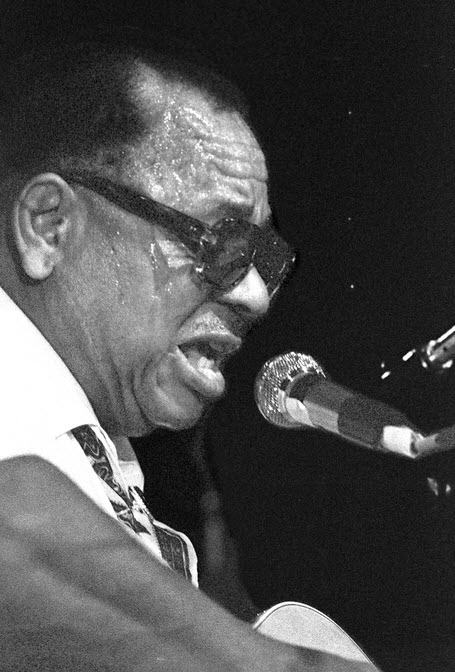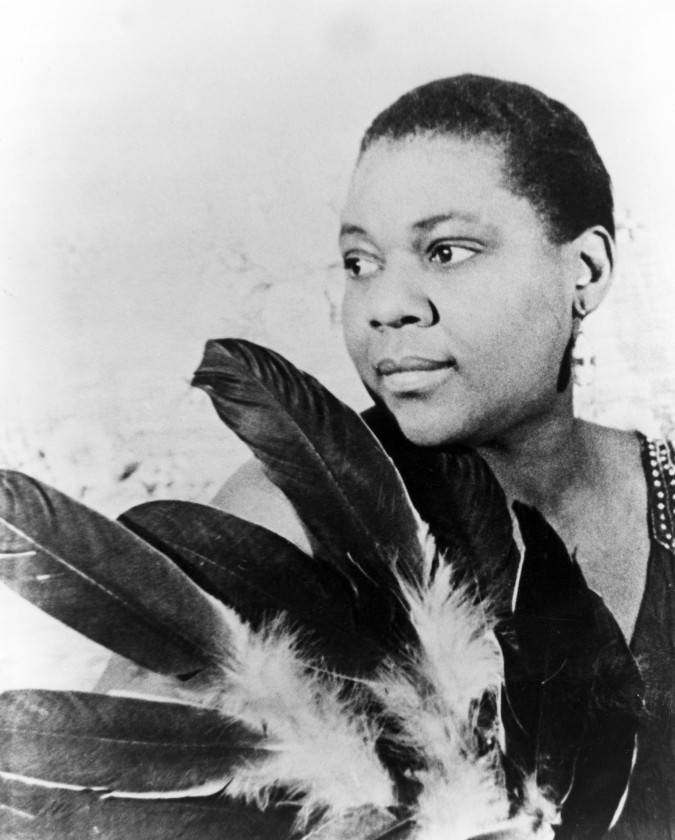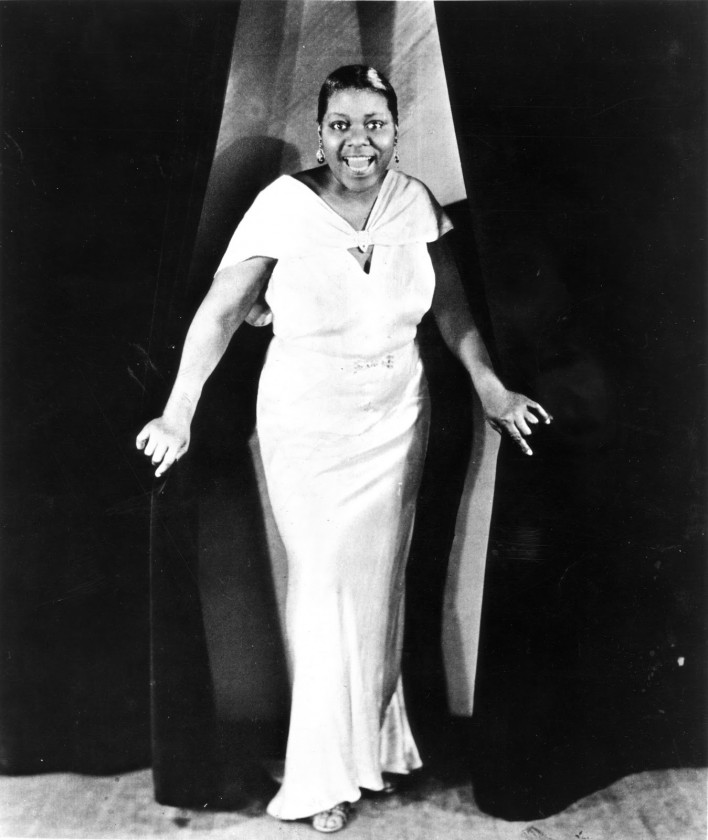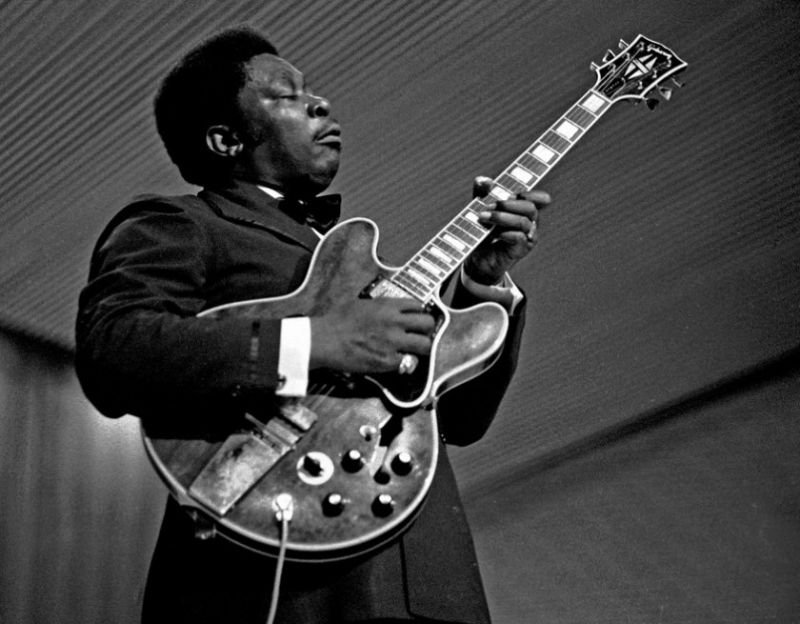 |
|
Continue reading Today: Delbert McClinton is 73 Happy Birthday
 |
|
Continue reading Today: Delbert McClinton is 73 Happy Birthday
Baby, please don’t go
Baby, please don’t go
Baby, please don’t go
Down to New Orleans
You know I love you so
Baby, please don’t go“The way I think about the blues, comes from what I learned from Big Joe Williams.”
~Bob Dylan (“The Freewheelin’ Bob Dylan” Liner Notes)
| Birth name | Joseph Lee Williams |
|---|---|
| Born | October 16, 1903 Crawford, Mississippi, United States |
| Died | December 17, 1982 (aged 79) Macon, Mississippi, United States |
| Genres | Delta blues |
| Occupations | Musician, songwriter |
| Instruments | Vocals, guitar |
| Labels | Bluebird, Delmark, Okeh, Prestige, Vocalion Records |
Joseph Lee Williams (October 16, 1903 – December 17, 1982), billed throughout his career as Big Joe Williams, was an American Delta blues guitarist, singer and songwriter, notable for the distinctive sound of his nine-string guitar. Performing over four decades, he recorded such songs as “Baby Please Don’t Go”, “Crawlin’ King Snake” and “Peach Orchard Mama” for a variety of record labels, including Bluebird, Delmark, Okeh, Prestige and Vocalion. Williams was inducted into the Blues Hall of Fame on October 4, 1992.
Blues historian Barry Lee Pearson (Sounds Good to Me: The Bluesman’s Story, Virginia Piedmont Blues) attempted to document the gritty intensity of the Williams persona in this description:
“When I saw him playing at Mike Bloomfield’s “blues night” at the Fickle Pickle, Williams was playing an electric nine-string guitar through a small ramshackle amp with a pie plate nailed to it and a beer can dangling against that. When he played, everything rattled but Big Joe himself. The total effect of this incredible apparatus produced the most buzzing, sizzling, African-sounding music I have ever heard”.
| Big Joe Williams may have been the most cantankerous human being who ever walked the earth with guitar in hand. At the same time, he was an incredible blues musician: a gifted songwriter, a powerhouse vocalist, and an exceptionally idiosyncratic guitarist. Despite his deserved reputation as a fighter (documented in Michael Bloomfield’s bizarre booklet Me and Big Joe), artists who knew him well treated him as a respected elder statesman. Even so, they may not have chosen to play with him, because — as with other older Delta artists — if you played with him you played by his rules. ~Barry Lee Pearson (allmusic.com) |

Here are 2 great videos from youtube with BJW playing live:
Continue reading Today: The late Big Joe Williams was born in 1903, 110 years ago
I was told when I started to play that simple music is the hardest music in the world to play. And blues is simple music.
~Albert CollinsMost of the time I hum what I’m playing so sometimes it bleeds through on the track. That’s why I get hoarse sometimes when I try to sing, I’ll be humming my notes, and I’m not always aware of how hard I’m doing it. That’s really how I started playing, just with my mouth.
~Albert CollinsIf trouble was money, I’d swear I’d be a millionaire
If trouble was money, babe, I’d swear I’d be a millionaire
~Albert Collins (If Trouble Was Money)
If Trouble Was Money (Live 1990):
From Wikipedia:
| Born | October 1, 1932 Leona, Texas, United States |
|---|---|
| Died | November 24, 1993 (aged 61) Las Vegas, Nevada, United States |
| Genres | Blues, blues rock |
| Occupations | Musician, songwriter |
| Instruments | Guitar, vocals, harmonica |
| Years active | 1952–1993 |
| Labels | Alligator |
Albert Collins (October 1, 1932 – November 24, 1993) was an American electric blues guitarist and singer (and occasional harmonica player) whose recording career began in the 1960s in Houston and whose fame eventually took him to stages across North America, Europe, Japan and Australia. He had many nicknames, such as “The Ice Man”, “The Master of the Telecaster“ and “The Razor Blade”.
| Albert Collins, “The Master of the Telecaster,” “The Iceman,” and “The Razor Blade” was robbed of his best years as a blues performer by a bout with liver cancer that ended with his premature death on November 24, 1993. He was just 61 years old. The highly influential, totally original Collins, like the late John Campbell, was on the cusp of a much wider worldwide following via his deal with Virgin Records’ Pointblank subsidiary. However, unlike Campbell, Collins had performed for many more years, in obscurity, before finally finding a following in the mid-’80s. ~Richard Skelly (allmusic.com) |
Iceman:
Albert Collins was an inspiration to a generation of Texas guitar players including Stevie Ray Vaughan and Jimmie Vaughn. He was amongst a small group of Texas blues players, along with Johnny “Guitar” Watson and Johnny Copeland, who together shaped the legacy of T-Bone Walker into a modern blues template that was to have a major influence on many later players.
From an interview with Robert Cray in Guitar World magazine:
…it was seeing Albert Collins at a rock festival in 1969 that really turned his head around. Two years later, Collins played at Cray’s high school graduation party in Tacoma, Washington, and the ice-pick sound really sunk in deep. “That was it,” Cray recalls. “That changed my whole life around. From that moment I started seriously studying the blues.”
Album of the day – Ice Pickin’ (1978):
From allmusic – Thom Owens:
Ice Pickin’ is the album that brought Albert Collins directly back into the limelight, and for good reason, too. The record captures the wild, unrestrained side of his playing that had never quite been documented before. Though his singing doesn’t quite have the fire or power of his playing, the album doesn’t suffer at all because of that — he simply burns throughout the album.
….read more over @ allmusic.com
Other October 1:
Continue reading Today: The late Albert Collins was born in 1932, 81 years ago

Bessie Smith (April 15, 1894 – September 26, 1937) was an American blues singer.
Nicknamed The Empress of the Blues, Smith was the most popular female blues singer of the 1920s and 1930s. She is often regarded as one of the greatest singers of her era and, along with Louis Armstrong, a major influence on later jazz vocalists.

She scored a big hit with her first release, a coupling of “Gulf Coast Blues” and “Downhearted Blues”, which its composer Alberta Hunter had already turned into a hit on the Paramount label. Smith became a headliner on the black T.O.B.A. circuit and rose to become its top attraction in the 1920s. Working a heavy theater schedule during the winter months and doing tent tours the rest of the year (eventually traveling in her own railroad car), Smith became the highest-paid black entertainer of her day. Columbia nicknamed her “Queen of the Blues,” but a PR-minded press soon upgraded her title to “Empress”.
Smith was gifted with a powerfully strong voice that recorded very well from her first record, made during the time when recordings were made acoustically. With the coming of electrical recording (circa 1925), the sheer power of her voice was even more clear.
She made 160 recordings for Columbia, often accompanied by the finest musicians of the day, most notably Louis Armstrong, Coleman Hawkins, Fletcher Henderson, James P. Johnson, Joe Smith, and Charlie Green.
Selective awards and recognitions:
Grammy Hall of Fame
Recordings of Bessie Smith were inducted into the Grammy Hall of Fame. This special Grammy Award was established in 1973 to honor recordings that are at least 25 years old and that have “qualitative or historical significance.”
| Bessie Smith: Grammy Hall of Fame Award | ||||
| Year Recorded | Title | Genre | Label | Year Inducted |
|---|---|---|---|---|
| 1923 | “Downhearted Blues” | Blues (Single) | Columbia | 2006 |
| 1925 | “St. Louis Blues” | Jazz (Single) | Columbia | 1993 |
| 1928 | “Empty Bed Blues” | Blues (Single) | Columbia | 1983 |
In 2002 Smith’s recording of the single, “Downhearted Blues”, was included by the National Recording Preservation Board in the Library of Congress’ National Recording Registry. The board selects songs on an annual basis that are “culturally, historically, or aesthetically significant.”
“Downhearted Blues” was included in the list of Songs of the Century by the Recording Industry of America and the National Endowment for the Arts in 2001. It is in the Rock and Roll Hall of Fame as one of the 500 songs that shaped rock ‘n’ roll.
| Year Inducted | Category | Notes |
|---|---|---|
| 2008 | Nesuhi Ertegun Jazz Hall of Fame | Jazz at Lincoln Center, NYC |
| 1989 | Grammy Lifetime Achievement Award | |
| 1989 | Rock and Roll Hall of Fame | “Early influences” |
| 1981 | Big Band and Jazz Hall of Fame | |
| 1980 | Blues Hall of Fame |
St. Louis Blues (1929):
Baby Won’t You Please Come Home (1923):
Album of the day – The Essential Bessie Smith (1997):
Other September 25:
Continue reading Today: Bessie Smith passed away in 1937 76 years ago

The blues was like that problem child that you may have had in the family. You was a little bit ashamed to let anybody see him, but you loved him. You just didn’t know how other people would take it.
~B. B. KingI never use that word, retire.
~B. B. KingUniversally hailed as the reigning king of the blues, the legendary B.B. King is without a doubt the single most important electric guitarist of the last half century. His bent notes and staccato picking style have influenced legions of contemporary bluesmen, while his gritty and confident voice — capable of wringing every nuance from any lyric — provides a worthy match for his passionate playing.
~Bill Dahl (allmusic.com)
The Thrill Is Gone (Live at Montreux 1993):
From Wikipedia:
| Birth name | Riley King |
|---|---|
| Also known as | B.B. King, King of the Blues |
| Born | September 16, 1925 (age 88) |
| Origin | Itta Bena, Mississippi, United States |
| Genres | Blues, soul blues, jazz, blues rock, electric blues, rhythm and blues, soul |
| Occupations | Musician, songwriter, producer |
| Instruments | Vocals, guitar, piano |
| Years active | 1949–present |
| Labels | Geffen/Interscope/Universal,Bullet Records, RPM Records,Crown, ABC, MCA,Reprise/Warner Bros.,Virgin/EMI |
| Associated acts | Bobby Bland, Eric Clapton, Pappo, Big Krit |
Riley B. King (born September 16, 1925), known by the stage name B.B. King, is an American songwriter, vocalist, and famed blues guitarist.
Rolling Stone magazine ranked him at No. 6 on its list of the 100 greatest guitarists of all time. and No. 17 in Gibson’s Top 50 Guitarists of All Time. According to Edward M. Komara, King “introduced a sophisticated style of soloing based on fluid string bending and shimmering vibrato that would influence virtually every electric blues guitarist that followed.” King was inducted into the Rock and Roll Hall of Fame in 1987. He is widely considered one of the most influential blues musicians of all time, because of this he is often nicknamed ‘The King of Blues’. He is also known for performing tirelessly throughout his musical career appearing at 250-300 concerts per year until his seventies. In 1956 it was noted that he appeared at 342 shows, still at the age of 86 King appears at 100 shows a year.
Over a period of 63 years, King has played in excess of 15,000 performances.
Over the years, King has developed one of the world’s most identifiable guitar styles. He borrowed from Blind Lemon Jefferson, T-Bone Walker and others, integrating his precise and complex vocal-like string bends and his left hand vibrato, both of which have become indispensable components of rock guitarists’ vocabulary. His economy and phrasing has been a model for thousands of players, from Eric Clapton and George Harrison to Jimmy Page and Jeff Beck. King has mixed blues, jazz, swing, mainstream pop and jump into a unique sound. In King’s words, “When I sing, I play in my mind; the minute I stop singing orally, I start to sing by playing Lucille.”
Everyday I have the Blues:
How Blue Can You Get (Legends of Rock ‘n’ Roll):
Album of the day – Live At The Regal (1965):
Other September 16: